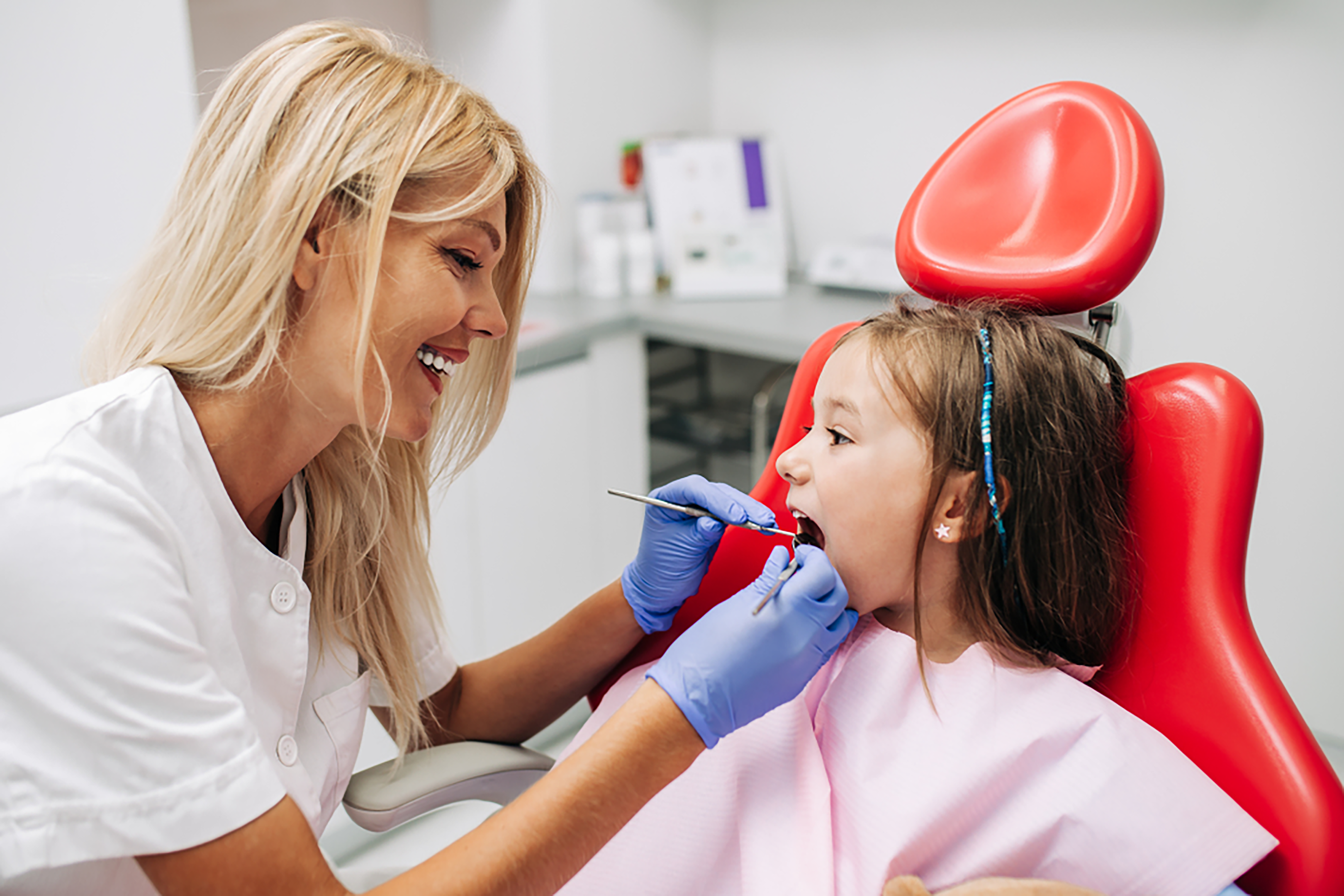Did you know that babies are born with 20 teeth? According to our pediatric dentist near you, they lie in wait beneath the surface of the gums until every parent’s favourite time — teething time. Those baby teeth generally appear around six to seven months (though it can happen anytime between three and 18 months). There are lots of myths and misconceptions about baby teeth. Most of them come from the fact that they’re all eventually going to fall out by the time one is a teenager.
In the interest of setting your child up for a lifetime of good oral health — and maybe saving you a few dollars in avoidable dental and orthodontic expenses — we’d like to bust a few myths about baby teeth.
Do Cavities in Baby Teeth Matter?
Yes, cavities in baby teeth matter. Cavities are one of the most obvious symptoms of tooth decay. Cavities are not the end of the tooth decay process, however. Bacteria can enter your child’s baby teeth through that cavity and cause an infection and abscess (a pocket of pus). An infection can cause inflammation and severe toothache. As if teething weren’t painful enough, adding infection-related toothache pain to your infant’s life makes things much worse for you all.
Beyond the risk of infection-related toothache pain, that infection can spread to and damage the gums and still invisible permanent tooth that will emerge later.
Is Brushing Baby Teeth Important?
Children with good oral hygiene habits are less likely to develop tooth decay and cavities, and, as discussed above, infections. Brushing baby teeth is important for those teeth while they’re in place and for the health of your child’s teeth and gums in future decades. Developing good oral care habits from infancy will hold your children in good stead for fewer and less dramatic dental issues as they grow up.
Baby Teeth aren’t Important Since They’re Just Going to Fall Out
Baby teeth — sometimes called primary teeth or milk teeth — are temporary, it’s true. But temporary is all a matter of perspective. The front four teeth may fall out when your child is seven, but the molars will be in place for over a decade. They’ll likely fall out around the time your child becomes a teenager.
Between the ages of seven and 13, those baby teeth will ensure your child eats properly and define the channel through which their permanent teeth will grow. Healthy primary teeth establish properly sized and straight channels for those permanent teeth. On the other hand, a poorly defined channel because of unhealthy milk teeth may require future orthodontic work to resolve misaligned permanent teeth.
When Should a Baby Go to a Pediatric Dentist For The First Time?
There’s a myth that children don’t need to see our pediatric dentist in Waterloo until a problem emerges. That’s not true. You should take your baby to our dentist in Waterloo when her first baby tooth appears and no later than his first birthday. It’s an invitation to problems emerging without you knowing it until it’s much more difficult to address or reverse.
An early introduction to our pediatric dentist near you will help identify any early oral health care issues, reduce future nervousness about dentists, and contribute to developing lifelong oral care habits.
Don’t fall for myths that minimize the importance of milk teeth. They’ll disappear eventually but have a critical role to play in the meantime. Support your child’s healthy growth and development by contacting our pediatric dentist near you as soon as your child’s first tooth appears.

